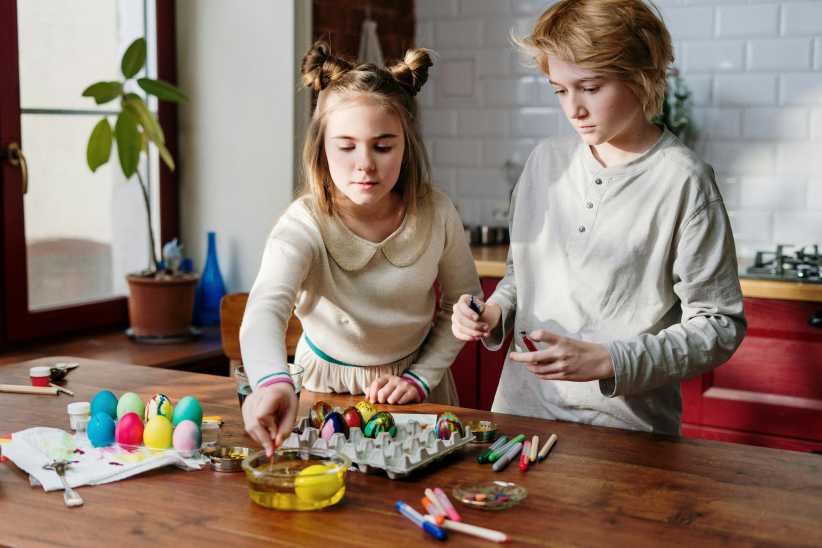New York is the most culturally diverse place on the planet. Walk into any subway car, and you’re surrounded by dozens of cultures and languages. And amazingly, we’re able to live in relative harmony.
But during the holidays, this harmony can be put to the test for intercultural families, in which partners come from different religious, cultural, or racial backgrounds. Here again, we New Yorkers lead the world in “mixing it up”.
Holidays and their meanings live deep within us; even as we might consider ourselves open and receptive to other traditions, there’s no escaping the fact that our memories, associations, and feelings can be evoked powerfully during holiday time. Smells, foods, music can all transport us back to our childhoods in a split second. Intellect holds little sway against the emotional potency of the holiday season.
How well intercultural couples navigate the holidays depends largely on decisions you’ve made as a family thus far. What faith have you agreed to observe? Have you decided on one or the other, or neither? Or have you decided to combine the two?
The stronger your sense of identity as a couple, the better your chances of coming to agreement on how best to handle the holidays. This means making the journey of creating your own sense of family, distinct from those of your family of origin. But what if you’re not there yet?
First off, be honest with yourself and your partner about the importance of holiday observances. What might have seemed unimportant when you were single might have gained significance since starting a family. Perhaps it’s now important to pass those rituals onto your kids. Or not. The point is: Now’s the time to see how important this is to you and your partner.
If you choose to integrate both faiths, both of you need to make the effort to share your religious heritage. Mutuality is key here, especially when kids are involved. When children see parents working together to create cohesive family traditions, it’s easier for them to feel cohesive and comfortable in their own identity.
Even with the greatest care, hot buttons can still be pushed during holidays. Holiday meanings we carry with us can stay dormant until they suddenly arise with little warning. Loyalties can sometimes be called into play: Your side of the family might want you to participate in festivities in ways that no longer work for you or your partner. Try to be aware of these buttons and keep your priorities clear: the needs of your partner, children, and yourself.
Here are five ways you and your mate can make the holidays easier for all:
Be decisive: Deciding now how to handle religious holidays will make things easier down the line. Talk with your partner about possible areas of conflict and then create a strategy that works for you both. Plan what you’re going to say should family members confront your decisions.
Be yourself: You can’t be all things to everyone, so don’t even try. Make your holiday decisions, let people know, and then move on.
Be loyal: You and your mate are a couple and a team. When all the holiday spectacle subsides, you two will be going home together. So whatever guilt trips or power ploys extended family members might put on you, keep your boundaries.
Be prompt: Tell family and friends about your holiday plans earlier than later. If you can’t or don’t want to celebrate a holiday, tell them as soon as possible. You get the truth off your chest and this lets the others make alternative plans.
Be inclusive: Though it’s easier said than done, try to involve both sides of the family in your observances, if they’re open to it. Nothing full-blown here; rather, smaller is better — like caroling for an hour or sharing a meal of potato pancakes.
Despite generations of worrying about kids’ sense of identity, research shows that children brought up in an intercultural family aren’t usually destined for identity conflicts. Whether kids are raised in one religion, both religions or no religion has little or no impact on their mental well-being. The most important thing is that both parents work together on the same plan. If parents can’t bring together their goals and strategies for their kids’ faith development, the child will suffer. On the other hand, when parents do work together, children can develop a clear sense of personal identity while reducing the feeling of being caught between conflicting forces.
For intercultural couples, the holiday season is rarely straightforward. But the work you put into it can yield an experience of mutual respect, meaning and . . . fun!
Gary Singer, LCSW, is a therapist in private practice in Brooklyn. In addition to working with individuals, couples, and groups, he specializes in intercultural relationships and men’s issues. He can be reached at (718) 783.1561.



















